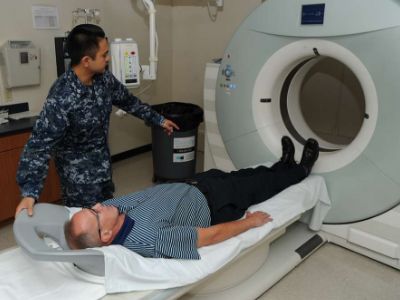Epithelial Ovarian Cancer

Epithelial ovarian cancer is the most common type of ovarian cancer. The epithelial tissue, a thin lining covering an ovary, becomes infected with this type of cancer. The lining of the fallopian tube can also develop cancer. Alternatively, it can begin in the peritoneum, which covers the abdominal organs. Fallopian tube cancers and primary peritoneal cancers are considered epithelial ovarian cancers. The diseases share many similarities, including treatment approaches.
Ovarian cancer is a group of cancers that begin in your ovaries. These organs are part of the female reproductive system. Most females have two ovaries that produce eggs and hormones. From your ovaries, eggs travel through your fallopian tubes to your uterus.
What causes Epithelial Ovarian Cancer?
Most cancers including Epithelial Ovarian Cancer develop for no known reason. Studies have shown that many ovarian cancers start in cells at the end of the fallopian tubes. As a result, it spreads to the ovaries.

What are the symptoms of Epithelial Ovarian Cancer?
In the early stages of Epithelial Ovarian Cancer, it rarely causes symptoms. As the disease progresses, symptoms become more noticeable. As it spreads, into your peritoneum, fluid accumulates in your abdomen. In addition, you may also experience the following symptoms:
- Pelvic pain
- Bloating
- Nausea
- Vomiting
- Abdominal pain
- Difficulty eating or feeling full quickly
Call your doctor right away if you experience:
- Unexplained abdominal or pelvic pain
- Changes in frequency or urgency of urination
- Loss of appetite or feeling of fullness
How to diagnose Epithelial Ovarian Cancer?

There are no screening tests available to detect ovarian cancer early. Tests may only be performed if you have symptoms or are at high risk. During your pelvic exam, your healthcare provider may check for unusual growths or enlarged organs. You might have a CA-125 blood test to check for elevated levels of a protein called cancer antigen 125 (CA-125). High levels may mean you need more testing.
These imaging tests help detect ovarian cancer:
- CT scan
- MRI
- Transvaginal ultrasound
- Positron emission tomography (PET) scan
- Chest X-rays (to look for metastatic cancer to the lungs)
A laparoscopy is also an option. This less invasive procedure lets your surgeon view your reproductive organs. Your doctor may take tissue samples of a tumor to biopsy for cancer cells. A biopsy is the only way to definitively diagnose ovarian cancer.
What is the treatment and medications used for Epithelial Ovarian Cancer?
Depending on the cancer type, you may get one or more of these treatments after surgery:
- Chemotherapy to kill cancer cells
- Intraperitoneal chemotherapy to treat stage 3 ovarian cancer by injecting cisplatin and paclitaxel directly into your abdominal cavity through a surgically placed catheter.
- Targeted therapies to stop cancer cells from growing and multiplying
- Radiation therapy to destroy cancer cells with high-energy X-ray beams.
Medications used to help with certain symptoms of Ovarian Cancer:



